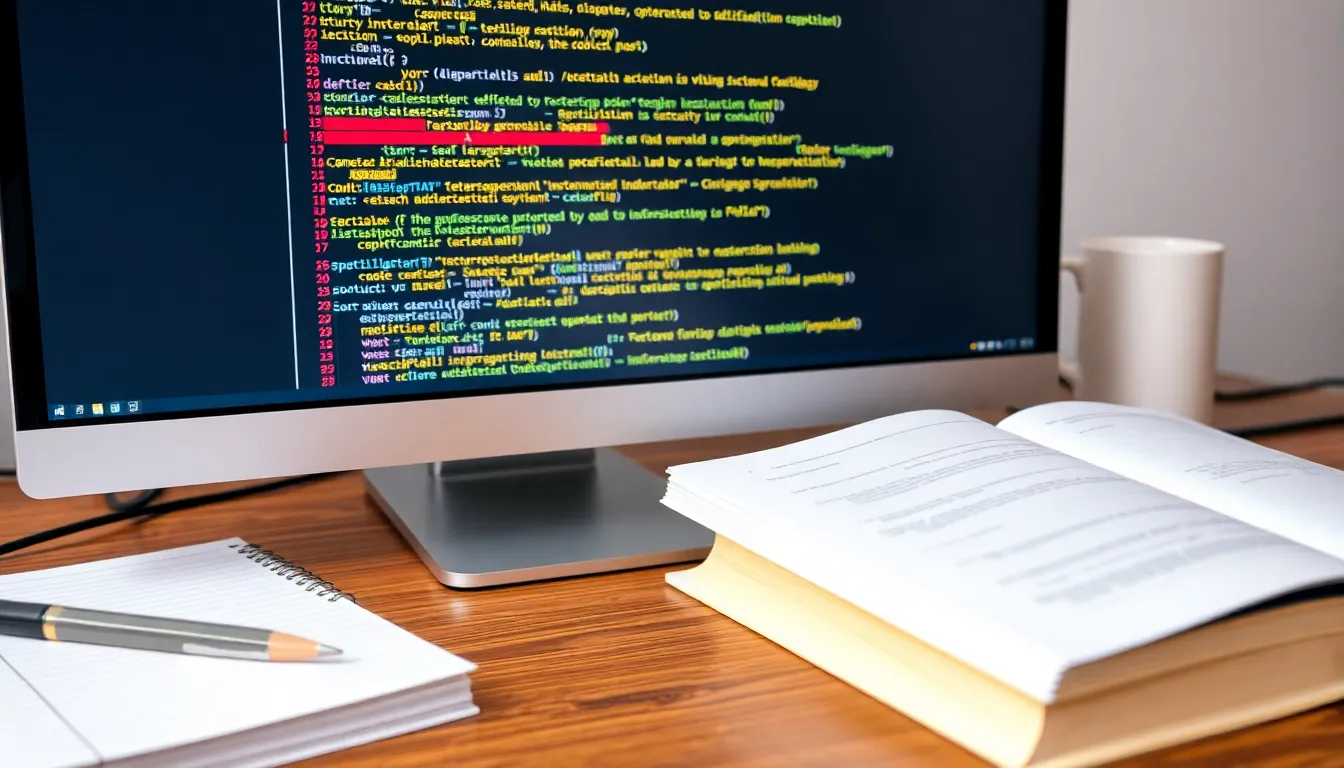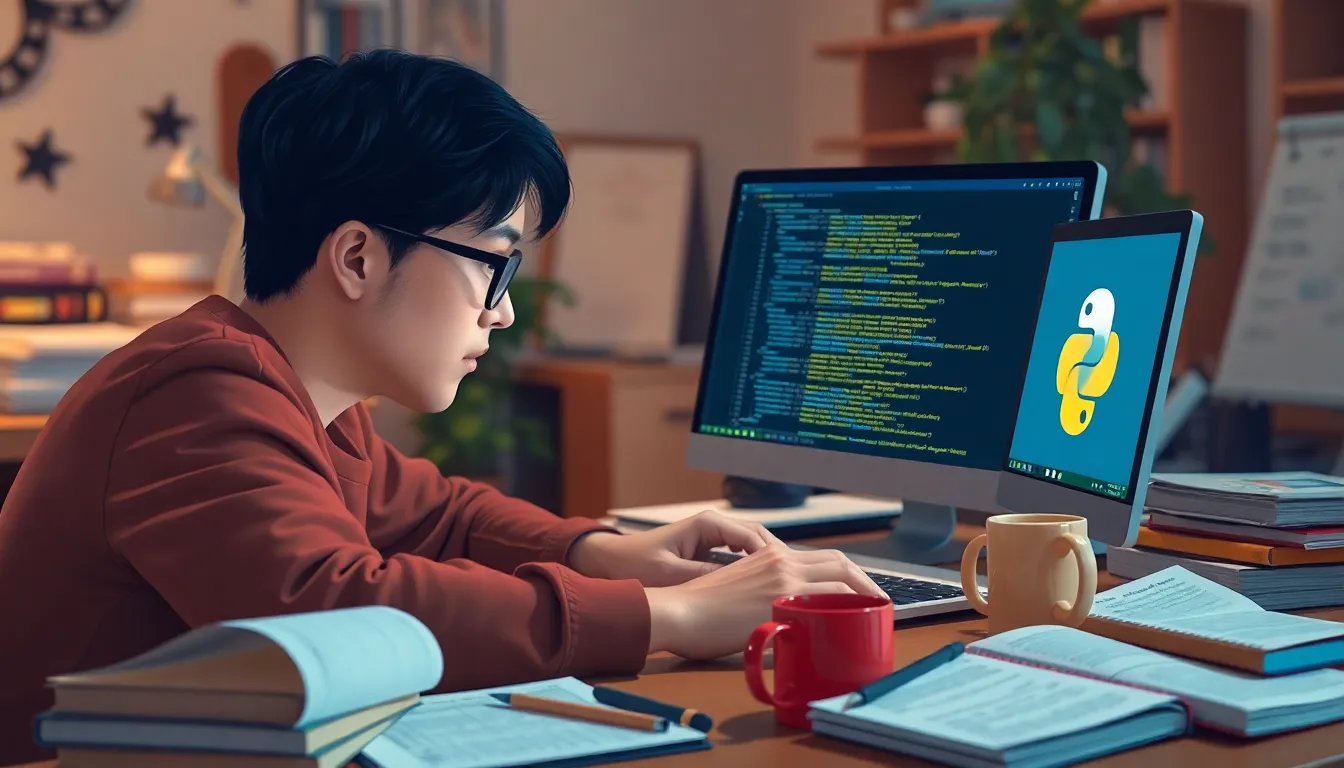Encountering a Python error can feel like stepping on a Lego in the dark—unexpected and painful. One such pesky error is the notorious oxzep7, which can leave even seasoned developers scratching their heads. But fear not! This article is here to unravel the mystery behind this software hiccup, turning confusion into clarity faster than you can say “syntax error.”
Python Error Oxzep7 Software
Python error oxzep7 often occurs due to syntax issues in the code. Misplaced parentheses, quotation marks, or colons can trigger this error. Developers frequently encounter it when attempting to run scripts or applications without resolving these minor mistakes.
Programmers may also face oxzep7 errors when incompatible library versions are in use. Libraries must match the Python version; for instance, Python 3.x libraries won’t work with a Python 2.x installation. It’s essential to ensure compatibility among libraries to prevent such errors.
Consulting the traceback messages can reveal the exact line where the error appears. Tracebacks provide valuable context, helping developers pinpoint the source of the issue. Debugging tools like PyCharm or Visual Studio Code can enhance error identification by highlighting syntax problems.
Utilizing the Python documentation aids in understanding specific functions and methods. Documentation often contains examples that clarify how to use various components correctly. When using an external library, reading the relevant documentation becomes crucial for avoiding version incompatibilities.
Testing smaller code snippets individually helps isolate the source of the error. By breaking down the code, developers can identify which part triggers oxzep7. Running unit tests frequently can also prevent errors from entering the final application.
Monitoring the development environment reduces the likelihood of encountering this error. Regular updates ensure the Python installation and libraries remain stable. Observing changes in updates often provides additional insights on error prevention and resolution.
Focusing on these strategies can significantly mitigate the frequency of the oxzep7 error in Python programming.
Common Causes of Python Error Oxzep7

Python Error oxzep7 often stems from specific coding issues and library conflicts. Understanding these causes aids in quicker resolution.
Invalid Code Syntax
Invalid code syntax commonly triggers the oxzep7 error. Misplaced parentheses or quotation marks create immediate syntactical issues. Forgetting a colon at the end of a function definition often leads to confusion. Each of these problems results in Python failing to interpret the intended logic properly. A thorough review of the code helps identify these mistakes. Debugging tools effortlessly highlight where the syntax error occurs, facilitating quicker fixes. Keeping Python documentation handy enhances clarity on the correct code structure.
Dependency Issues
Dependency issues frequently cause the oxzep7 error due to version incompatibility. When libraries don’t match the version of Python in use, errors arise. Conflicts often result when different libraries depend on varying versions of a shared component. These discrepancies necessitate careful management of installed libraries. Verifying the versions against the project’s requirements reduces the chance of this error. Package managers like pip help ensure dependencies are correctly maintained and updated. Regular updates to the development environment keep all components synchronized to limit potential errors.
Troubleshooting Python Error Oxzep7
Developers often encounter the Python error oxzep7, leading to confusion and disruptions during coding. Identifying the source of this error helps streamline the resolution process.
Identifying the Error Source
Syntactical mistakes frequently trigger the oxzep7 error. Developers should look for misplaced parentheses, quotation marks, and missing colons in their code. Utilizing IDEs with built-in linting tools makes spotting these issues easier. In addition, checking the version compatibility among libraries can reveal if dependencies contribute to the error. Discrepancies between Python versions and installed libraries often create conflicts. Debugging tools also facilitate code testing by highlighting problematic areas.
Recommended Fixes
To resolve the oxzep7 error, developers must ensure their code adheres to correct syntax rules. Starting with a thorough review of the code’s structure enhances clarity. Using a reliable package manager, like pip, helps maintain proper library versions. Running version checks regularly can prevent dependency issues. Testing code snippets incrementally reduces the risk of encountering the error further. Keeping Python documentation accessible aids in verifying the accuracy of syntax and library usage.
Best Practices to Avoid Python Error Oxzep7
Debugging code involves various best practices that help minimize the occurrence of Python error oxzep7. First, verifying code syntax before execution is crucial. Reviewing each line for misplaced parentheses, quotation marks, or colons can prevent significant syntactical issues.
Utilizing integrated development environments (IDEs) with linting tools aids in quickly identifying mistakes. These tools highlight errors in real-time, giving developers immediate feedback, which streamlines the troubleshooting process. Ensuring the correct version of Python is in use also plays a vital role in avoiding errors.
Maintaining compatibility among libraries prevents dependency conflicts that lead to the oxzep7 error. Developers must regularly check the installed library versions against project requirements to ensure alignment. Using package managers like pip simplifies the process of updating libraries, keeping everything in sync.
Incremental testing of code snippets is another effective strategy. Testing small sections of code minimizes complexity, making it easier to isolate issues early. Consulting Python documentation while coding clarifies correct syntax and best practices.
Regularly updating the development environment helps ensure all components function harmoniously. When all dependencies and the Python version are current, the chances of running into the oxzep7 error decrease significantly. Staying organized with project structures and requirements reinforces clarity and reduces potential errors.
Establishing a routine for code reviews also enhances overall code quality. Conducting reviews can catch unnoticed mistakes, improving the final product. Ultimately, these best practices contribute to a smoother coding experience and minimize frustrations related to the oxzep7 error.
Smoother Development Experience
Addressing the oxzep7 error in Python is crucial for a smoother development experience. By being vigilant about code syntax and maintaining library compatibility developers can significantly reduce the chances of encountering this frustrating issue. Utilizing IDEs with linting tools and adhering to best practices like incremental testing and regular code reviews ensures a more efficient workflow. Staying updated with Python documentation and managing dependencies effectively further enhances code quality. By following these strategies developers can navigate the complexities of Python programming with greater confidence and ease.
